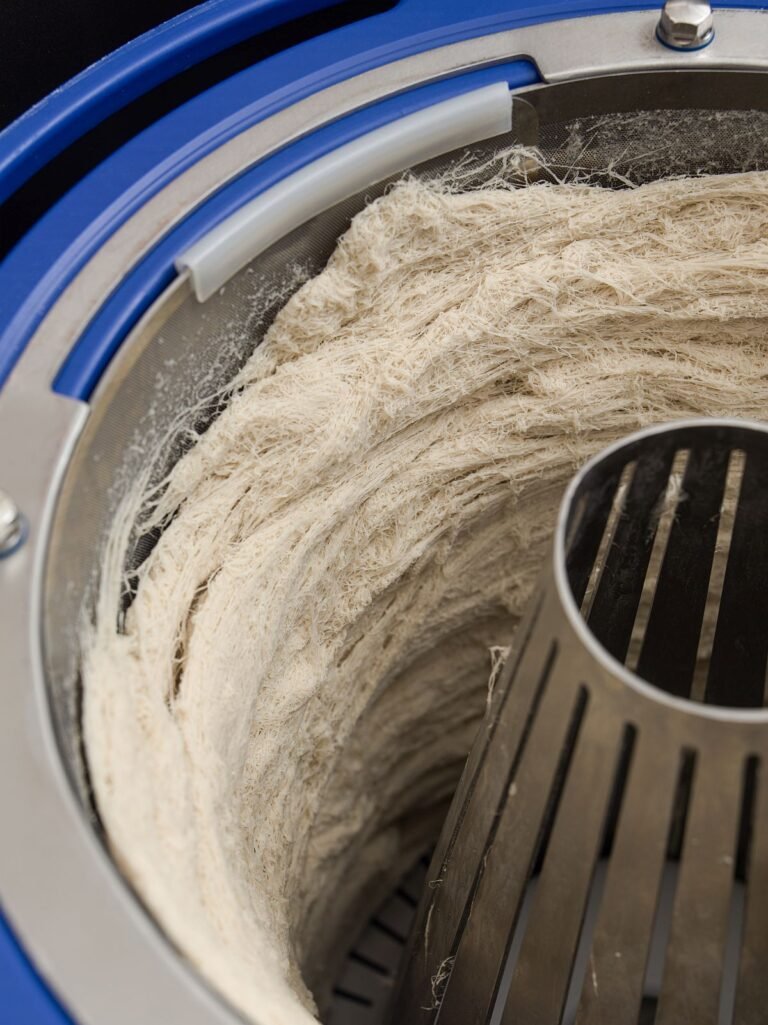- Israeli startup Asterix Foods has emerged from stealth armed with $4.2m to scale the production of dairy, egg, and other animal proteins in a low-cost plant cell culture platform.
- The round was led by CPT Capital and supported by Grok Ventures, ReGen Ventures and SOSV.
- The new funds will enable Asterix to expand its team and establish pilot scale production to get samples out to industry, says founder and CEO Dan Even, PhD.
‘Plant cells can easily achieve glycosylations that microbial fermentation is challenged by’
While several startups produce animal proteins via precision fermentation using microbial hosts such as yeast or fungi, Asterix believes plant cell culture can be scaled more cheaply and rapidly.
Rather than growing fully grown plants, firms in the plant cell culture arena grow plant cells in suspension in bioreactors.
The internal machinery of plant cells is better suited than that of yeast or fungi to produce the kind of highly functional, bioactive glycoproteins that Asterix is focusing on, founder Dan Even tells AgFunderNews.
Glycoproteins such as lactoferrin or ovomucoid, which comprise proteins and carbohydrate chains, “require precise glycosylations to accurately fold, recognize, and bind, driving functional performance needed in the food industry,” says Even.
“To unlock this second wave of animal-free proteins, Asterix Foods is using plant cells, because plant cells can easily achieve glycosylations that microbial fermentation is challenged by,” adds Even, who founded Asterix in 2022.
“Precision fermentation can deal with simple proteins such as beta-lactoglobulin [they key protein in whey], which many companies are focused on,” says Even, who participated in the 13th cohort of IndieBio’s accelerator program.
“But when it comes to glycoproteins, their properties are derived from the amino acid sequence of the protein, but also from the production environment. Plant cells have different glycosylation machinery [to microbial cells] that’s more like what’s found in mammalian cells, which is an advantage when it comes to these complex proteins that require glycosylation.”
Cheaper, faster, simpler production process…
As for CapEx and OpEx, Asterix has developed a growing system using cheap plastic bags that can be scaled rapidly, re-used several times, and sterilized with gamma radiation, says Even, who has built a team of eight scientists and engineers. This is significantly cheaper and simpler than using costly steam-based clean-in-place systems typically utilized in large steel bioreactors used for microbial fermentation, claims Even.
Even, who previously co-founded a startup engineering soybeans to make dairy proteins, notes that producing these ingredients in a contained plant cell culture system will help Asterix avoid some of the regulatory headaches around allergen management facing startups in molecular farming that are engineering soybeans or other fully-grown plants to express dairy proteins, for example).
While precision fermentation systems with microbes are also self-contained, he says, “The difference is that we can use cheap and simple bioreactors. We’re talking about few hundred dollars per bioreactor unit, compared to millions of dollars for stainless steel bioreactors.
“We could offer to set partners up with 10 simple small bioreactors between 1,000-2000 liters each with a minimum investment of $1-2 million so they could test the market, see if there’s an opportunity and get more units up and running in a matter of weeks if there is. It de-risks everything massively.”
While the engineered plant cells Asterix is working with have “a 10-15-hour doubling time vs say three hours for precision fermentation,” they are capable of growing at room temperature, which saves energy, while its simple bioreactors require less monitoring and less equipment, he claims.
“We can also run our process in a continuous mode, sterilizing the units basically once or twice a year. With precision fermentation, you might only be [running the] fermentation for 30-40% of the year. The rest of the time is devoted to maintaining and sterilizing and cleaning the equipment. In our models, we calculate only about a month of downtime in the entire year.”
The business model
Asterix Foods’ long-term vision is to license its patent-pending tech to ingredient companies, dairy companies or other food companies, says Even. “We would provide them with the bioreactors, cell lines, the entire process, but they would be in charge of manufacturing. And this could be done anywhere in the planet, ideally right next to their existing facilities, so it can seamlessly integrate into their operations.”
Asked about downstream processing (DSP), the efficiency of which is key to the unit economics of the whole endeavor, he says, “We created an approach where we can secrete the protein into the media [which makes it easier to harvest]. Now this is the same as in precision fermentation, but our media is very cheap and simple, so the DSP is super-simplified due to this fact.”
Further reading:
California Cultured breaks new ground with patent on cocoa butter via plant cell culture
Could plant cell culture pave the way for the next generation of antioxidants and antimicrobials?
🎥Plant cell culture startup Green Bioactives preps for first commercial launches in 2026
The post Exclusive: Asterix Foods emerges from stealth to unlock ‘2nd wave’ of animal-free proteins in plant cell culture appeared first on AgFunderNews.




